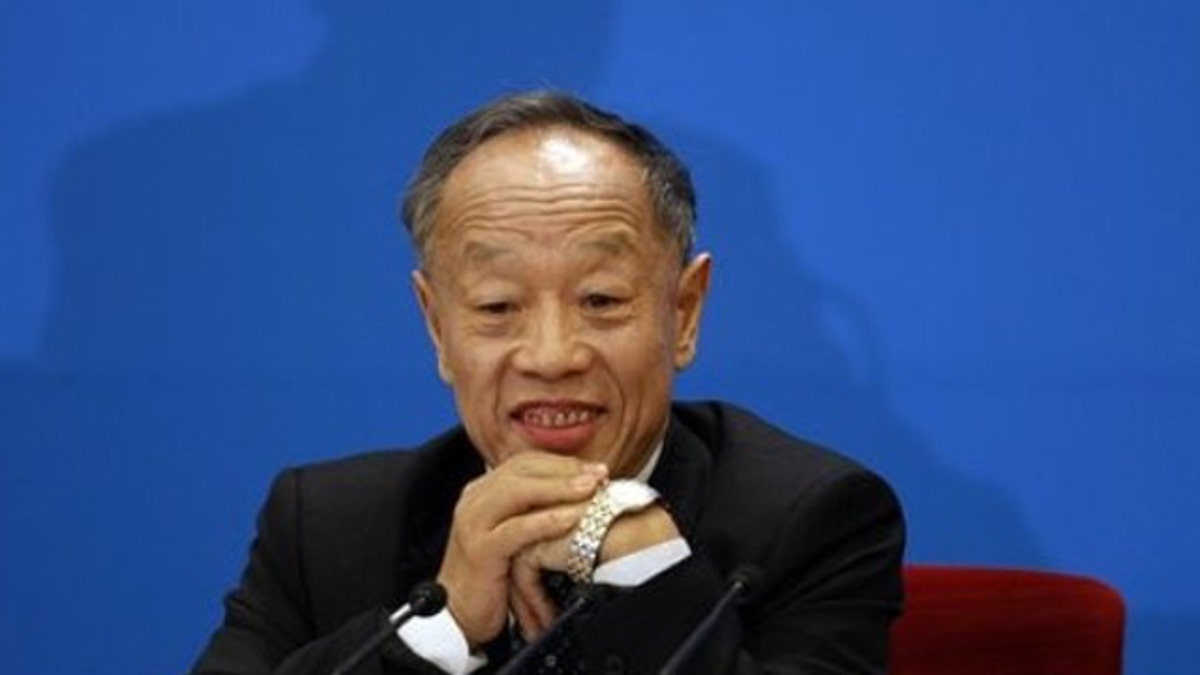
Mar. 4, 2012: Li Zhaoxing, spokesperson of the National People's Congress attends a press conference held on the eve of the National People's Congress at the Great Hall of the People in Beijing, China. (AP)
BEIJING – China's defense spending will see a double-digit increase again in 2012, as strong economic growth continues to fuel rapid military expansion, the country's legislature spokesman said Sunday.
Li Zhaoxing said defense spending would increase by 11.2 percent over actual spending last year to hit 670.2 billion yuan ($106.4 billion) in 2012, an increase of about 67 billion yuan.
China's official defense spending is the largest in the world after the United States, but actual spending, according to foreign defense experts, may be 50 percent higher, as China excludes outlays for its nuclear missile force and other programs.
Li, speaking at a news conference a day before the opening of the annual session of the National People's Congress, said China's military spending was small as a percentage of gross domestic product compared to other countries, especially the United States.
"China is committed to the path of peaceful development and follows a national defense policy that is defensive in nature," Li said. "You see, China has 1.3 billion people, a large territory and long coastline, but our defense spending is relatively low compared with other major countries."
Last year's military spending amounted to 1.28 percent of China's economy, Li said. By contrast, the ratio stood at 4.8 percent for the U.S. in 2010, according to the World Bank.
Beijing has mounted a robust defense buildup for more than two decades that has transformed the military into a formidable regional force, increasingly able to project power far from China. While chiefly aimed at the U.S., the buildup is also jangling nerves among Asian rival India and neighbors Japan, Vietnam and the Philippines, which have maritime disputes with China.
With the huge outlays, the Chinese military's armory include the home-built J-10 jet fighter, new nuclear submarines and modern surface vessels armed with supersonic anti-ship missiles. Last year, China began testing a new J-20 stealth fighter and launched sea trials of its first aircraft carrier, a refurbished hulk purchased from Ukraine. Cyber-warfare programs are also burgeoning.
While Beijing insists its military is defensive and is not a threat, defense analysts say the new capabilities are aimed at keeping foreign forces, especially the U.S., out of the seas and air space around China. The South China Sea has become a new potential flash point, with Beijing's more powerful navy and an assertive policy to defend contested claims to groups of islands, reefs and atolls, and the U.S. has declared its own interest in making sure sea lanes remain open.
Growing Chinese power and East Asia's economic importance is driving neighboring countries to boost defense spending and has prompted the U.S. to redirect defense resources to the region. Washington's moves to rotate new troops to Australia, shore up alliances with other traditional allies Japan and the Philippines while forging new military ties to Vietnam has heightened Beijing's fears of encirclement.
